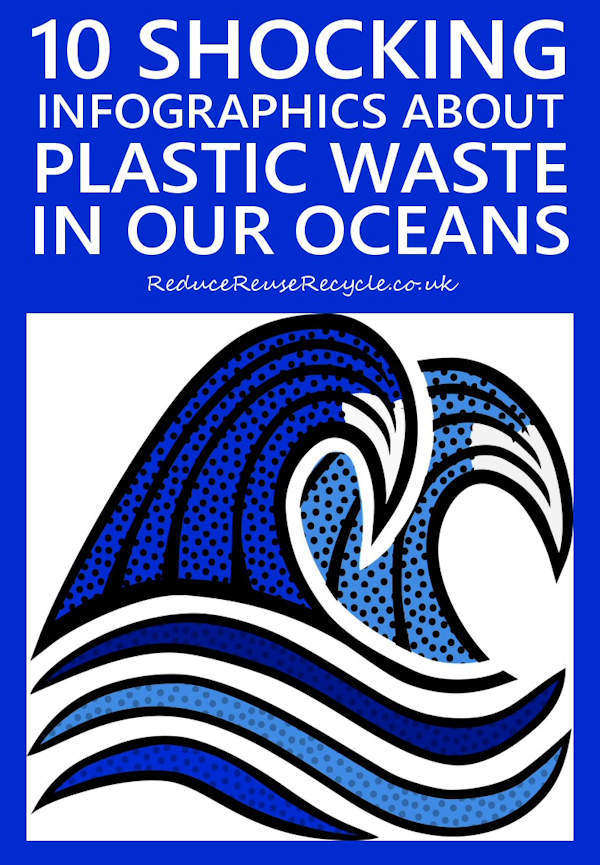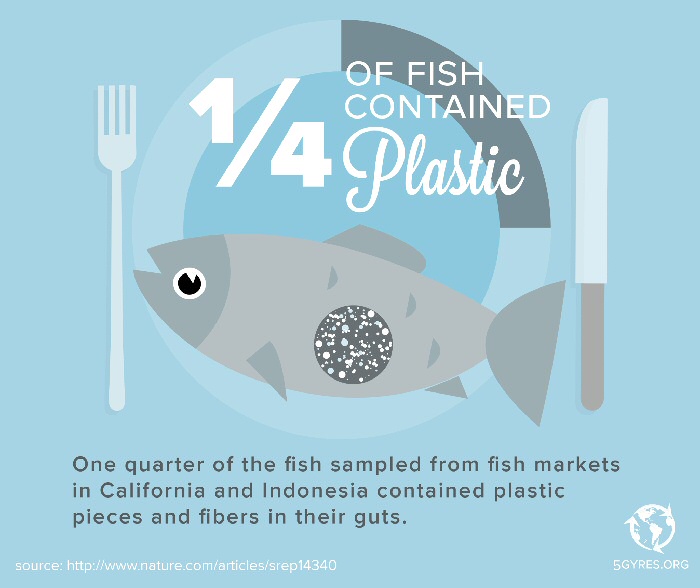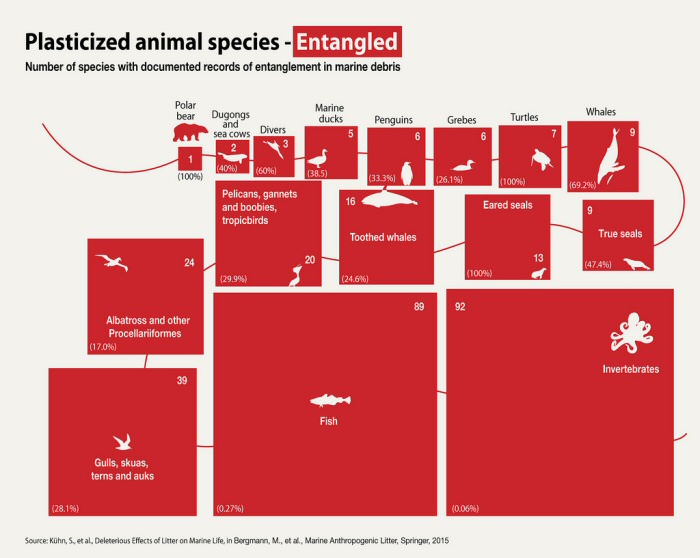10 Shocking Infographics About Plastic Waste In The Oceans

In the last few years there has been more and more evidence that plastic pollution in our oceans is becoming a massive problem.
Large pieces of plastic which end up in the sea can entangle marine animals or can also suffocate them
Tiny pieces of plastic – broken down by the action of water and the sun – cause harm by entering the marine food chain. If the animals eat plastic it will make them feel artificially full so that they do not eat and they starve to death.

Furthermore, when fish have eaten plastic it becomes part of their body; if we then eat that fish our food contains plastic - we are eating out own plastic waste.
Preventing Is Better Than Cleaning Up

Image Credit: Maphoto/Riccardo Pravettoni
It is vastly more expensive to clean up the sea than to find alteranive methods of waste disposal, and to reduce our overconsumption. From Grida.
25% Of Fish Contain Plastic

Image Credit: Lia Collabello
Horrifyingly, a quarter of the the fish we eat probably contains microplastics, which means that we are eating them too. From Our Oceans Our Future
The Impact Of Plastic Pollution on Oceans Is At Least $8 Bn Per Year

Image Credit: Maphoto/Riccardo Pravettoni
Plastic pollution custs everyone on the planet, in the form of pollution and cleaning up costs which are added to our taxes and to the cost of the products we buy. From Grida
Which Plastics Can You Actually Recycle?
How Ocean Pollution Affects Humans

The plastic we consume affects out bodies. It can hasten Alzheimers and Parkinsons Disease, affect our reproductive health, our breathing and even our digestion. Graphic by the team at DIVE.in
Numbers Of Animal Species Which Have Been Entangled in Marine Debris

Image Credit: Maphoto/Riccardo Pravettoni
Plastic pollution in the ocean affects all animals in the sea, not just fish. Birds, octopuses, seals and ploar bears can become entangled in plastic waste. From Grida
Numbers Of Animal Species Which Have Ingested Marine Debris

Image Credit: Maphoto/Riccardo Pravettoni
Animals are also accidentally ingesting plastic, not realisong that it is not food. From Grida
Oceans Of Garbage – Why People Are Eating Their Own Trash

We are eating our own trash. From MastersDegree.net
Plastics In The Ocean

The plastic waste that is dumped in our oceans can travel remarkable long distances. From Our Oceans Our Future
Pathways Of Plastics Into The Oceans

Image Credit: Maphoto/Riccardo Pravettoni
Plastic waste does not just enter our oceans when we leave a plastic bottle on the beach. It is caused by illigal dumping of trash and poor water treatment too. From Grida
The Top Ten Items Collected From The Ocean

These are the most common waste which is recovered from the ocean. Do any of them surprise you? From Ocean Conservancy
Read More
- How To Recycle Plastic
- 10 Things To Do To Save Honey Bees
- Sustainable Alternatives To Wrapping Paper
- How To Recycle Plastic bags
- What Does Zero Waste Mean?
What's New
- Environmental Days In December 2025
- Free Water Saving Devices For UK Residents
- STOP! Don't Put That In The Recycling!
- 21 Free Online Games About The Environment For Kids
- Best Plastic-Free Wet Wipes 2025
Most Popular in Recycling
CDs & DVDs
Videotapes & Cassettes
Duvets & Pillows
Ink Cartridges
Shredded Paper
Stamps
......Recycling A-Z